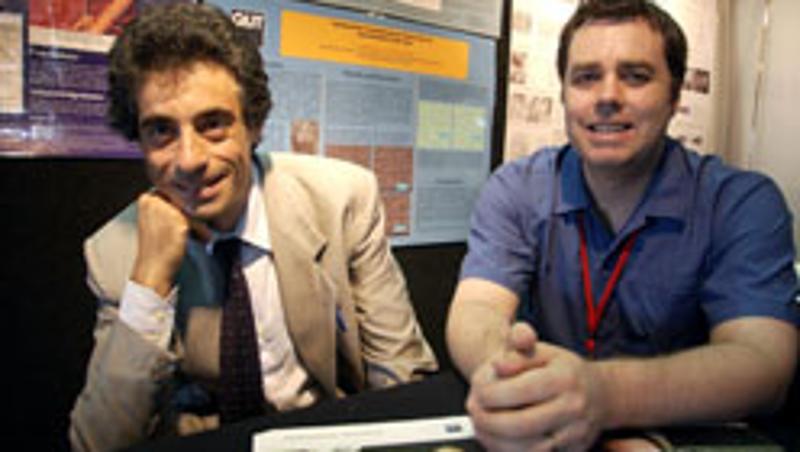
Nano scientists from Queensland University of Technology are developing cheap, portable, personal solar cells that will be able to recharge laptops and mobile phones.
The flexible, 100 nm (nanometres - a nanometre is one billionth of a metre) thick polymer sheet devices will be able to be rolled up and taken anywhere to free users-on-the-move from having to depend on fossil fuel powered sockets to keep their communications devices charged.
Professor Nunzio Motta of QUT's School of Engineering Systems and Dr Eric Waclawik from the School of Physical and Chemical Sciences are developing the new renewable energy source using nanotechnology.
Weighing all of 10 micrograms per cm2, the new product is a cheap composite material made from carbon nanotubes, a 10th of the size of a human hair, and conductive polymer.
The polymer tiles could be easily linked together in a patchwork to increase the size and generate more power according to individual needs.
"QUT is the only university to be looking to develop the use of carbon nanotubes in this way," Prof Motta said.
"This solar cell could generate enough energy to recharge the batteries of low power devices such as laptops and mobiles."
Dr Waclawik said the polymer could be a viable alternative to silicon solar cells which are expensive, heavy and delicate.
"Although silicon solar cells have gained considerable market share and commercial success, high production costs still limit their commercial viability," he said.
"This is why we are exploring the development of low cost alternative photovoltaic in the Applied Nanotechnology group under a QUT Strategic Collaborative Grant."
Media contact: Niki Widdowson, QUT Media, 07 3864 1841 or n.widdowson@qut.edu.au.
Dr Erik Waclawik 0408 860 686.
** A high res pic of Professor Motta and Dr Waclawik is available.


